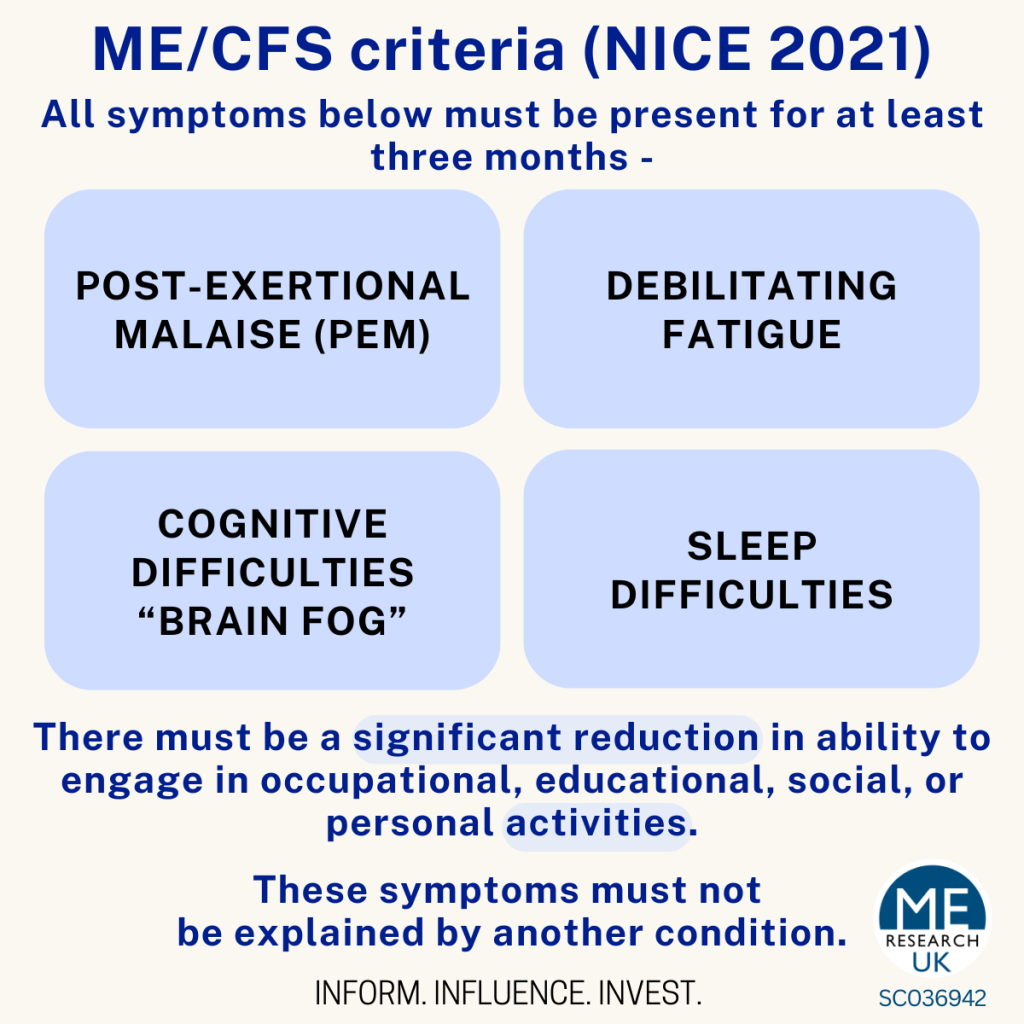This article is written for GPs and other healthcare professionals. ME Research UK has provided a print-friendly version that individuals can download and share with their healthcare provider.
What is ME/CFS?
Myalgic encephalomyelitis/chronic fatigue syndrome (ME/CFS) is a debilitating condition that significantly impacts quality of life. ME/CFS is not just fatigue. According to the NICE 2021 guideline, diagnosis also requires:
- Post-exertional malaise (PEM): Worsening of symptoms, typically occurring 24 – 72 hours following even minor physical or mental exertion. This is the hallmark feature.
- Cognitive difficulties (“brain fog”)
- Sleep difficulties e.g. unrefreshing sleep, insomnia, hypersomnia
Individuals often have a range of other symptoms, including pain and sensory hypersensitivity, and comorbidities, such as postural orthostatic tachycardia syndrome (PoTS).

How is the immune system involved?
Whilst no definitive diagnostic test or biomarker has yet been identified for ME/CFS, research shows multiple biological abnormalities, with strong evidence for immune system involvement.
Changes in the immune system may help explain why patients experience:
- Ongoing “flu-like” symptoms
- Increased frequency of infections (e.g. colds) compared to before ME/CFS onset
- Flare-ups/worsening of ME/CFS symptoms following infectious episodes
What does the research show?
ME/CFS is no longer viewed as a complete “mystery.” A simple PubMed search reveals hundreds of biomedical studies showing measurable differences between people with ME/CFS and healthy controls.
Key immune findings in ME/CFS research include:
- Chronic immune activation and inflammation
- Natural killer (NK) cell dysfunction
- A frequent finding is reduced NK cell cytotoxicity, suggesting these cells may not fight infections effectively [9]
- T and B cell abnormalities
- Heightened immune responses to infections
- Overactive innate immune response after exposure to microbial agents [11]
Clinical relevance
Whilst no immune-based treatment is yet established, some therapies, e.g. immunoadsorption [12], have been trialled. In practice, immune findings mostly validate the biological nature of ME/CFS, help explain key symptoms, and support the importance of pacing (energy management) and appropriate management of symptoms and comorbidities.
Read simpler overview of how immune system is associated with ME/CFS




